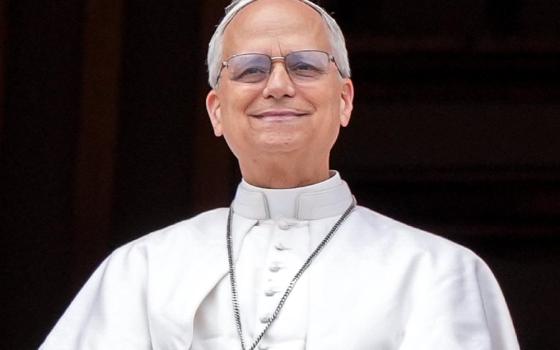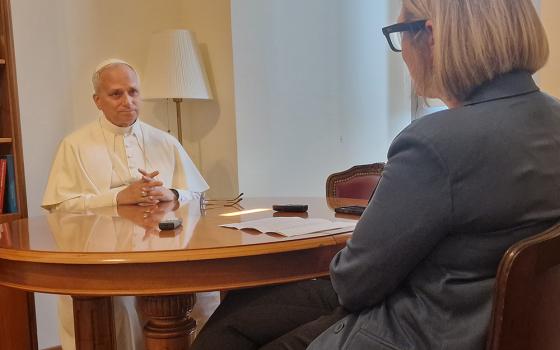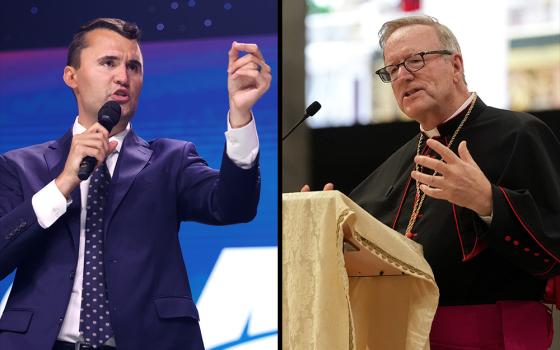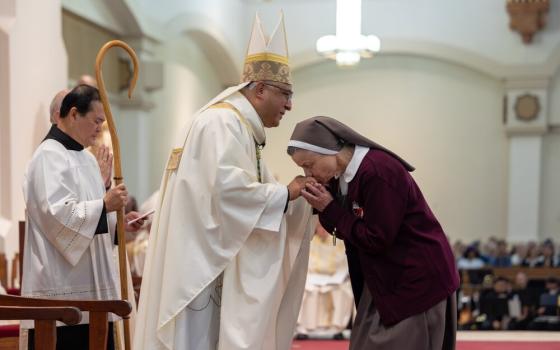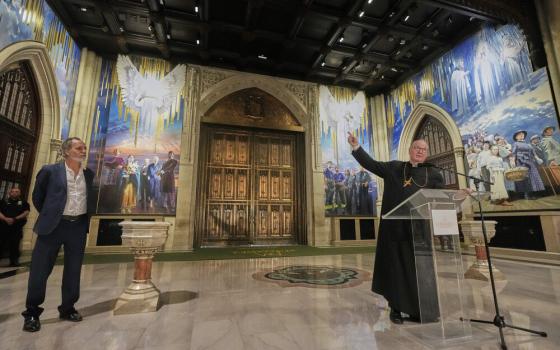
Following are NCR reader responses to recent news articles, opinion columns and theological essays with letters that have been edited for length and clarity.
The power of papal English
I was one among millions who rejoiced that we have an American born pope who has a natural facility in English (NCR, Aug. 8, 2025). I appreciate his need to speak in Italian while addressing the crowds in Vatican Square but English is a language spoken by more people over the world, in many cases a second language, than Italian would be.
True, Italian is the language of the Vatican and that goes without saying. However, every opportunity Pope Leo has to address the world, particularly the Anglophone population, he should seize the moment. Our church is universal and arguably from a worldwide perspective English is as well.
Pope Leo can reach millions more of the faithful, as well as non-Christians by speaking English when he is addressing the world. His impact will have a great benefit and will show our church to be far more inclusive than it might otherwise be perceived. Certainly, more people speak Chinese than English if one looks at populations. However, English is rapidly becoming the language of choice in business as well as politics and the English speaking population is common to every continent. Pope Leo should not just limit his use of English for occasions when he is addressing Americans, important as that is, he should use the opportunity to engage a much larger population, one that does not know continental boundaries.
CHARLES Le GUERN
Granger, Indiana
***

NCR's cogent political analysis
I write to express my gratitude to Rod Lamkey for his cogent, exquisitely expressed description of the dying of our nation's democracy and the hardening of heart demonstrated by almost everyone hired by our current president to do his will rather than God's or the majority of his countrymen (NCR, July 3, 2025).
Like most NCR readers, I have read hundreds of commentaries on this sad subject. Never have I read a better one in ANY publication. Bravo to Rod and the entire NCR staff for keeping us informed about the importance of honesty and openness in reporting on both Church and State.
MARY RITTEN
Minneapolis, Minnesota
***
The importance of Paul VI
Thank you, Michael Sean Winters, for such a beautiful, succinct, and assertive case for acknowledging Pope Paul VI as the Great Pope of the 20th Century (NCR, Aug. 6, 2025). Your persistent and patient review of his historic, monumental, and positive ecclesial and faith-based shifts in Christianity (in general) and Catholicism (in particular), point to a pious, humble leader who knew so well how to walk in the footsteps of Peter.
Too easily, I tire of the worn-out worship of John Paul II as the "great" 20th Century pope — especially with the fad-ish, politically-driven canonization process (and unfortunate result). Perhaps because of my own Catholic roots in the Archdiocese of Boston, I find only disturbance — and no solace — in John Paul's complicity with criminal bishops and priests worldwide!
Paul VI did the day-to-day, painstaking, and collegial counsel needed to move Vatican II forward.
MICHAEL MAGUIRE
Madison, Wisconsin
***
Advertisement
Tech and human nature pose danger
In a characteristically forward-thinking article lauding the evolutionary potential of AI, Ilia Delio invites but does not supply "ethical frameworks…to guide posthuman life" (NCR, Aug. 12, 2025). I direct an ethics program at MIT founded by Manhattan Project physicists who were plagued by guilt over their role in developing the atomic bomb; our mission is to challenge uncritical narratives of technological progress. In this vein, I question Dr. Delio’s confidence that AI-assisted evolution is good for the planet and for us. For instance, how do we interpret Teilhard de Chardin’s optimism about stages of progressive "consciousness-raising," which Dr. Delio cites, knowing that human beings have inaugurated a mass extinction event that is decimating the planet’s biological diversity?
Dr. Delio evokes our symbiotic relationship with technology as though it were a fait accompli; this preempts discussion on whether this relationship has been good for us and whether the human family has consented to becoming cyborgs. Further, it's a misdirection to cite academic theorists without mentioning Peter Thiel and other MAGA-aligned TESCREALists who have taken charge of this transhuman evolutionary process. We play into their hands whenever we engage with ChatGPT and other LLMs into which they’re pouring billions of dollars.
Disappointingly apolitical, Dr. Delio faults the Vatican for its caution but spares devious tech billionaires from critique. While fully aware that she did not intend to make a definitive statement, I think it’s important not to be too sanguine about the material forces currently acting on a generally unwitting public.
NICHOLAS COLLURA
Cambridge, Massachusetts
***
Vatican's AI-caution appreciated, wise
As a devoted Ilia Delio fan boy, it pains me to challenge her! However, her column on AI requires it (NCR, Aug. 12, 2025). She argues that AI development is integral to our evolution, that it will enhance human existence through expanded capabilities, and that the Church's AI guidelines are overly cautious.
Since humans first tamed fire, every new technology has expanded human capabilities; however, each new technology has also led to harmful uses. Fishing boats morphed into aircraft carriers; the discovery of X-rays led to Hiroshima; the success of Flyer I at Kitty Hawk led to drone strikes in Gaza. That pattern is hard wired into the human-technology relationship.
Humans are unique in our ability to manipulate nature as much as we do, to the point of self-destruction. Already, smart phones and social media damage relationships and our concepts of reality as much as they enhance them. Powerful economic and political forces are eagerly developing AI to control vast expanses of human labor and society for the basest of reasons. The data centers needed to power AI are greedily consuming water and energy on a warming and drying planet.
As Professor Delio knows, not all evolutionary developments benefit a species. The evolution of our forebrain and our ability to develop technologies like AI is way ahead of more primitive parts of our brain focused on self-preservation and survival. Until they are better linked and mutually supportive, and based on our history, I welcome any words of caution about new technologies. I am grateful to the Vatican for providing them.
ROB McDOWELL
Atlanta, Georgia
***
